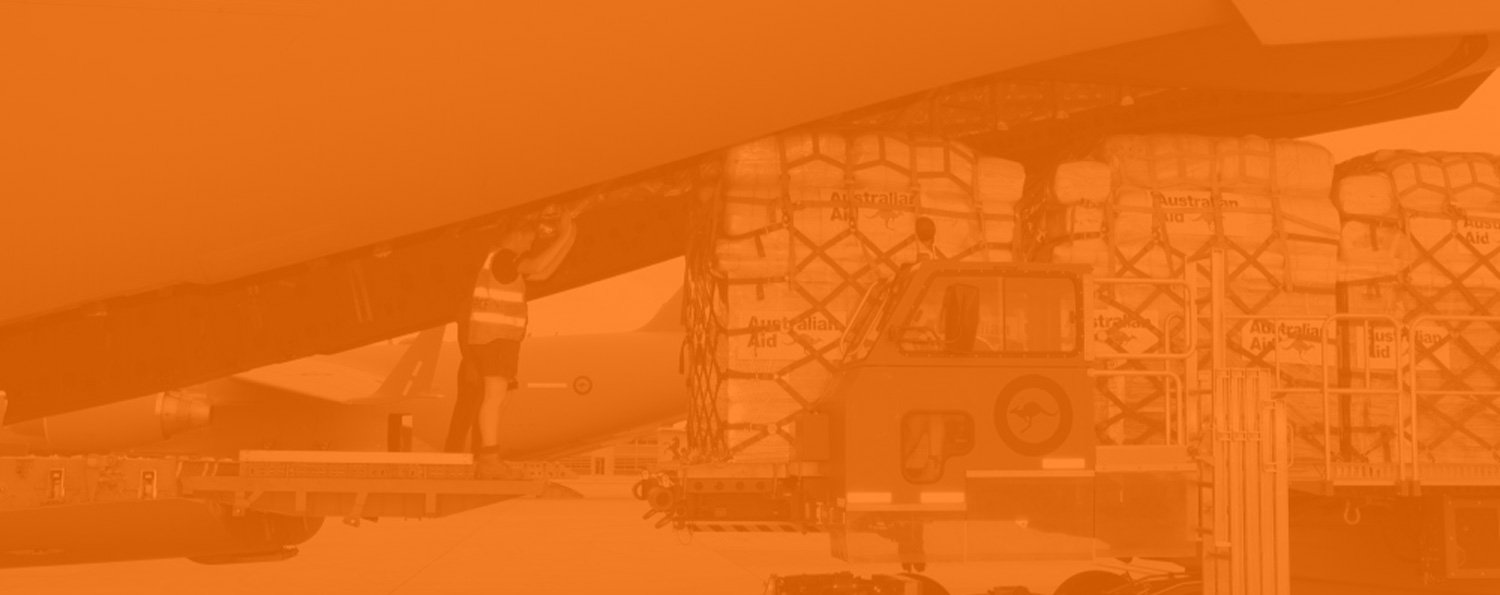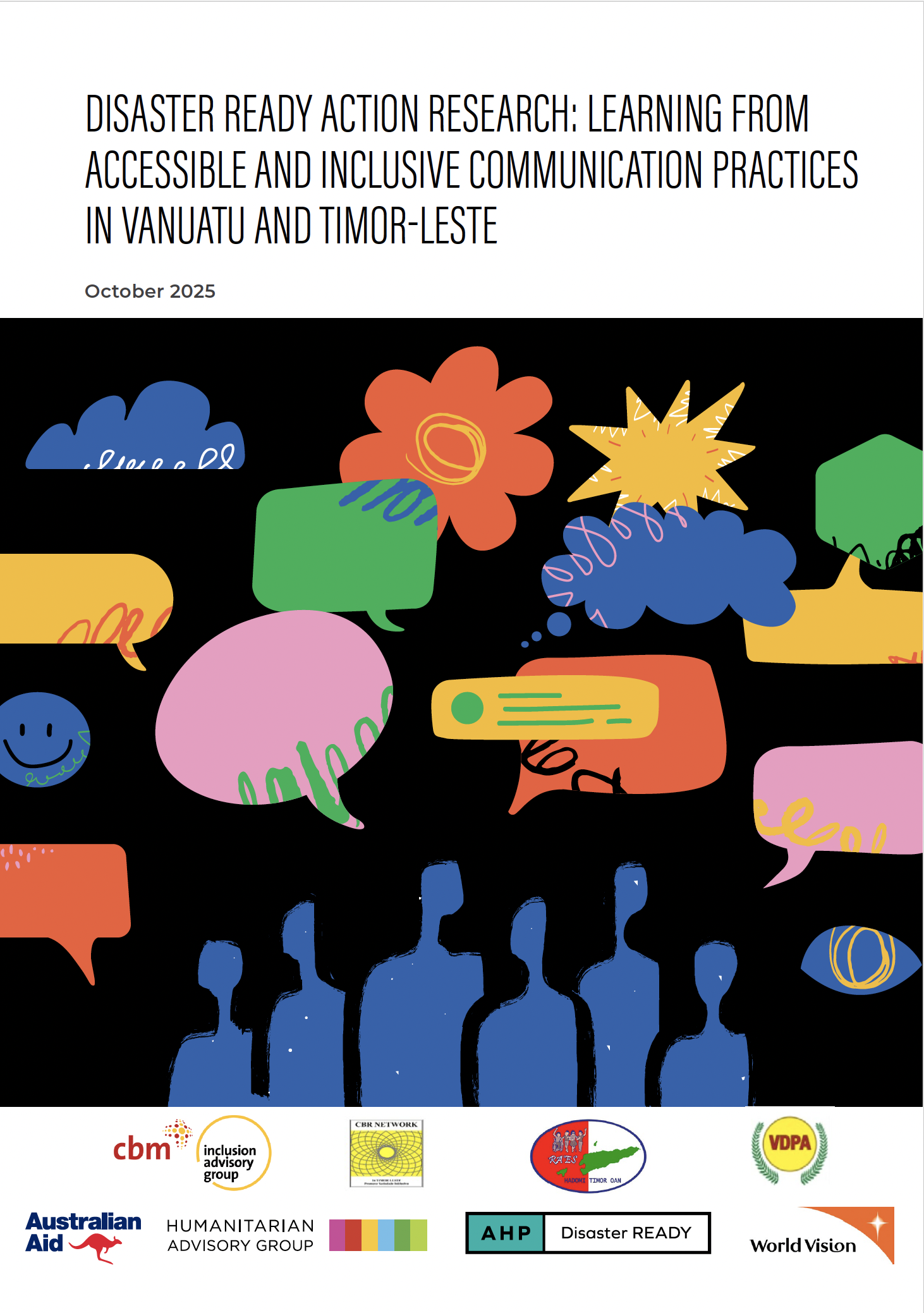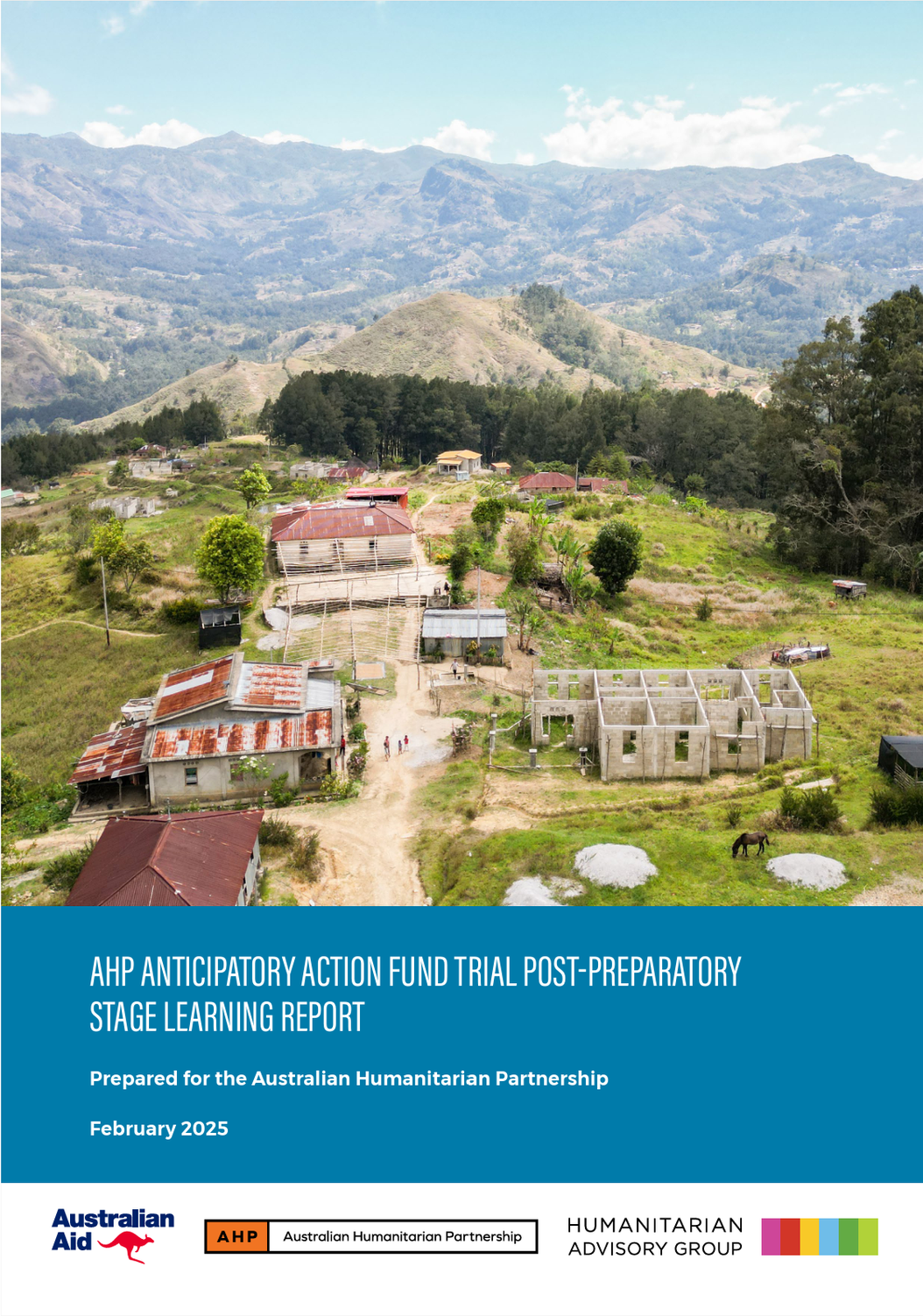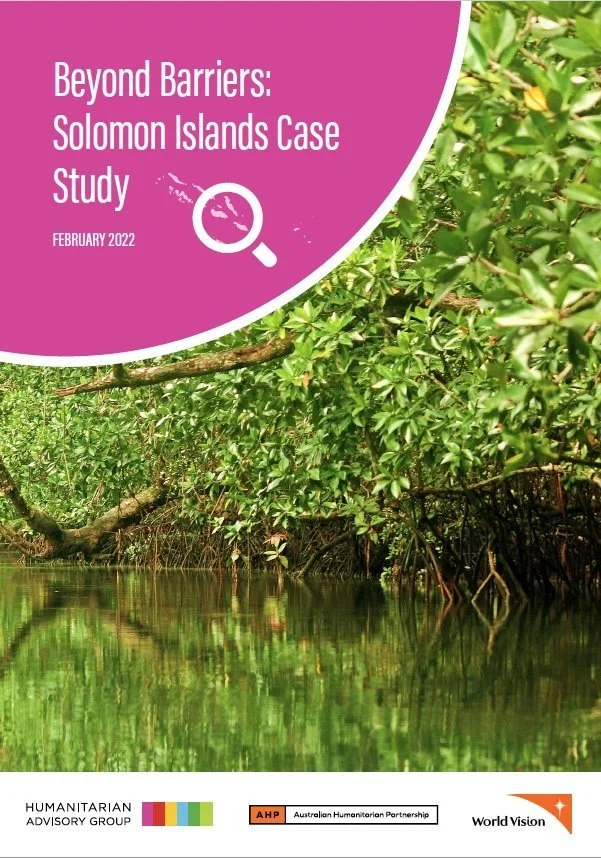
AHP Knowledge Hub
This study is to support DRCC members and partners to strengthen their practices of communication to communities for greater inclusion of persons with disabilities in disaster preparedness and climate resilience efforts. It builds on global best practice and contextual realities to identify opportunities for scaling up effective communication in context.
This report document the systems and processes implemented for the preparatory stage of the AHP Anticipatory Action Fund to identify what is working well and where opportunities exist for improvement and learning. The report focuses on cross-country lessons from Timor-Leste, Vanuatu, PNG and Solomon Islands.
November 2024: The AHP partners in Timor-Leste met to reflect on the key achievements, learnings, and challenges, while also receiving feedback and looking at future opportunities for Disaster READY across the country.
May 2024: The AHP partners in Timor-Leste met to reflect on the key achievements, learnings, and challenges, while also receiving feedback and looking at future opportunities for Disaster READY across the country.
December 2023: The AHP partners in Timor-Leste met to reflect on the key achievements, learnings, and challenges, while also receiving feedback and looking at future opportunities for Disaster READY across the country.
June 2023: The AHP partners in Timor-Leste met to reflect on the key achievements, learnings, and challenges, while also receiving feedback and looking at future opportunities for Disaster READY across the country.
December 2022: The AHP partners in Timor-Leste met to reflect on the key achievements, learnings, and challenges, while also receiving feedback and looking at future opportunities for Disaster READY across the country.
A new tip sheet produced by Organisations of People with Disabilities participating in the AHP Disaster READY program and CBM Australia shares practical advice for creating inclusive climate smart agriculture programming and activities.
An independent evaluation assessed the relevance, coherence, effectiveness, efficiency, impact and sustainability of AHP food security and livelihoods activations in the Horn of Africa, as well as the complementarity of WASH and protection components. The evaluation also considered accountability, localisation and the extent to which the interventions improved resilience of the target populations and addressed the needs of marginalised groups.
The Humanitarian Advisory Group undertook a longitudinal evaluation of the COVID-19 Pacific and Timor-Leste Preparedness and Recovery NGO Partnership to understand the impact of the partnership and support learning for improving implementation. This AHP learning brief captures key lessons for AHP partners.
The COVID-19 Pacific and Timor-Leste Preparedness and Recovery NGO Partnership was set up by the Australian Government in June 2020 to support communities across multiple countries to become resilient to and recover from the impacts of COVID-19, and included support to the Australian Humanitarian Partnership. An independent evaluation found that partnerships achieved significant benefits for affected communities.
This thematic review of Accountability to Affected Populations (AAP) was designed to inform learning and promote and enhance practice across the AHP mechanism in the area of AAP, including identifying challenges, risks, mitigations and recommendations to improve practice.
The evaluation of the AHP Bangladesh Response Phase III assessed results against four outcomes focused on: the basic needs of Rohingya and host communities; self-reliance of the affected population; resilience of Rohingya and host communities; and reform of the humanitarian system.
This learning brief captures the lessons from the Real Time Review (RTR) of the AHP response in Ukraine, with a particular focus on mental health and psychosocial support in emergencies.
This report documents achievements and lessons learned on disability inclusion in the AHP Phase III response in Bangladesh, and presents recommendations to further progress disability inclusion in the Rohingya response.
This AHP learning brief summarises the findings of the evaluation of risk communication and community education during the AHP COVID-19 response. This short document summarises key findings and lessons for practitioners.
In 2021–22, five AHP consortiums received additional funding to support the rollout and uptake of the COVID-19 vaccine in Papua New Guinea and to reduce the spread of the virus, through a focus on risk communication and community engagement (RCCE). This report details the achievements, enablers, challenges and learning in relation to RCCE approaches in AHP programming.
‘Colours of hope: partnering for rights and dignity’ is a photographic journey into the lives of displaced Rohingya living in Bangladesh and the communities that host them. The photo book captures the work of the Australian Humanitarian Partnership Consortium in Bangladesh across a wide range of sectors and activities, with images taken in early 2023.
This report seeks to reflect the lived experience of people with disabilities in the Rohingya AHP Phase III Response, their stories and feedback on what has changed for them, and the continued barriers they face.
This report presents the key lessons learned and challenges faced during the AHP Indonesia COVID-19 Response. During the End-of-Program Learning Event consortium members discussed the innovative localisation strategies which contributed to the program’s success.
This evaluation shows AHP-supported Unblocked Cash was an effective tool to help vulnerable households in Vanuatu accelerate their recovery from both the physical and economic impacts of TC Harold and the COVID-19 pandemic.
The Australian Humanitarian Partnership (AHP) is a ten-year (2017-2027) partnership between the Australian Government (Department of Foreign Affairs and Trade) and Australian Non-Governmental Organisations (ANGOs), comprised of two five-year phases. This Investment Design Document will guide the AHP through its second phase, from 2022-2027.
This case study explores Fiji’s progress in integration of climate change adaptation and DRR, identifying key themes and opportunities for stakeholders to advance approaches that reduce risk and enhance resilience at the community level in Fiji.
In PNG disaster risk reduction and climate change adaptation activities largely operate largely in silos. This case study identifies opportunities for high-quality integrated approaches at the local and provincial levels to be replicated and scaled.
This case study explores Solomon Islands’ progress in the integration of DRR and climate change adaptation (CCA), identifying key themes and opportunities for stakeholders to advance approaches that reduce risk and enhance resilience in communities.
This case study on the integration of disaster risk reduction and climate change adaptation policies in Vanuatu is part of the ‘Beyond Barriers’ series, an initiative of Humanitarian Advisory Group, Australian Humanitarian Partnership and World Vision Australia.




























The report draws on two comparative case studies in Vanuatu and Solomon Islands, as well as an extensive desk review of documents. It explores the roles and impact of Organisations of Persons with Disabilities (OPDs) in each country and identifies key challenges and enablers constraining and supporting OPDs’ contributions to the disaster preparedness and response sector, through a localisation lens.